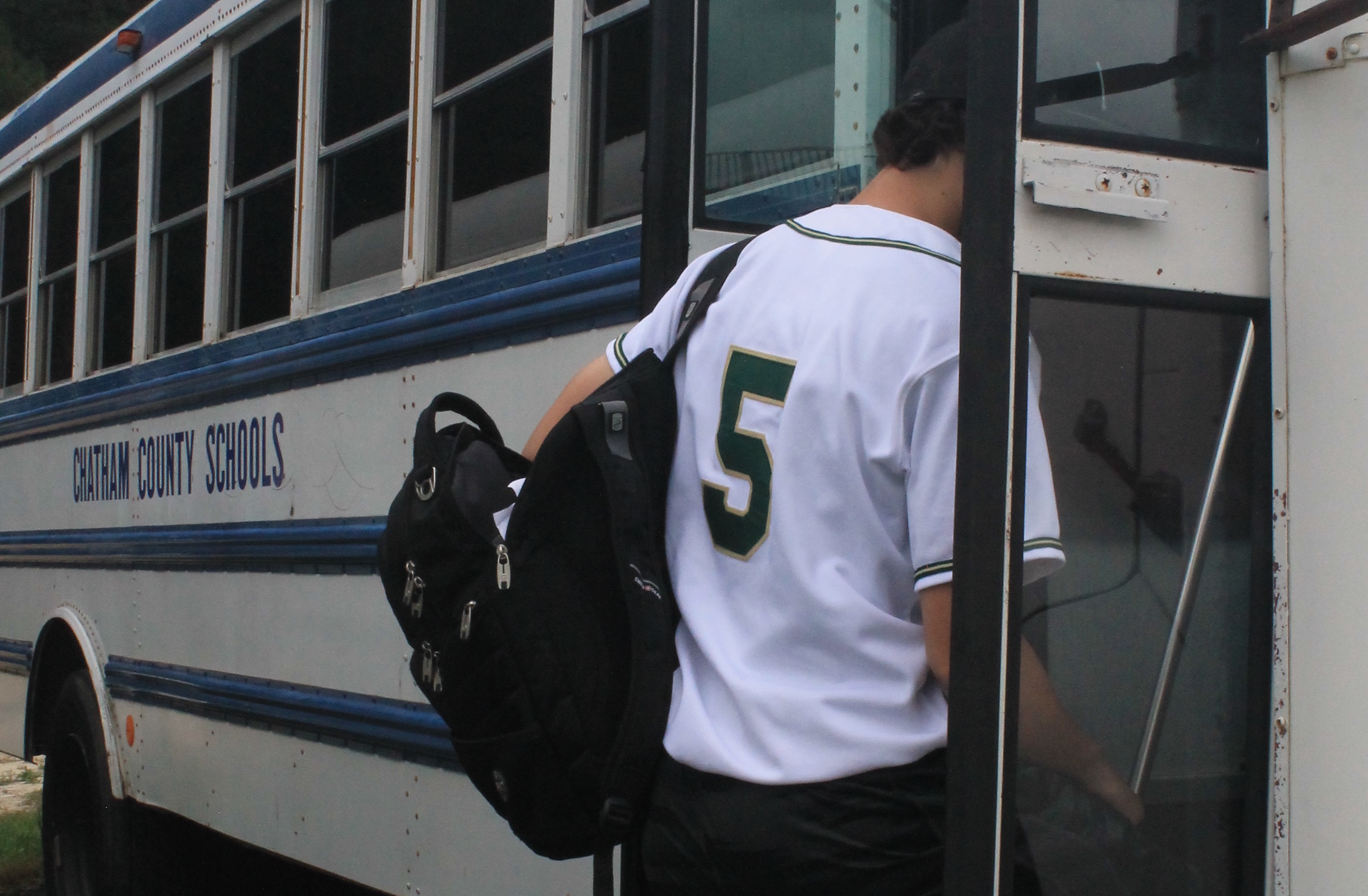For some student-athletes, the phrase “away game” means more than just game day—it means early release. Depending on the sport, athletes can miss anywhere from 10 minutes to a full day of school for one event.
For many teams, the reason for early release often has to do with the travel time to their opponent. Since the golf team cannot compete at “home,” they must travel long distances for almost every match, resulting in being released as early as 10:30 a.m.
“We get released early because we usually travel, and our longest travel time is probably an hour and twenty minutes,” said junior Ben Ramos, a boys’ golf player. “It also takes about an hour to warm up, and then finishing a round before daylight takes about four and a half hours, so getting [a match] in before finishing in the dark [is important].”
According to junior Colton Lineman, a varsity baseball player, the baseball team is often released early during their season as well.
“We get released early for almost every away game, and depending on how far it is, we leave somewhere between 2:30 p.m. and 3 p.m.,” Lineman said.
Junior Dalton Romagnoli, another varsity baseball player, corroborates Lineman’s statement and believes that the time is necessary.
“It takes us a long time to stretch, so we have to get to the field and be ready to play, and we play a lot of teams that are far away,” Romagnoli said.
Varsity baseball coach Rick Parks considers a lot of factors when determining early release.
“I look at where we’re traveling, I look at what time I’m planning on getting there, if their field offers batting practice or not—meaning that we have access to their cages—and also any time, depending on the game time, if there is a need to stop and eat something before the game,” Parks said. “If it’s a seven o’clock game, I put all of that in my calculations, and I always try to be at the field an hour and a half before the game.”
Although it is common practice to leave early for away games, there have been instances where teams were released early for home games as well.
“We got released early for one home game and that was because the team had to come especially early,” Lineman said. “They had to come and play the game by 4:15 p.m. Because the game had to be played so early, we had to get out early so we could prepare ourselves.”
Junior Austin Nykamp, a boys’ tennis player, agrees that teams need time to prepare.
“We need the time to warm up,” Nykamp said. “We need at least 30 minutes before the match starts to warm up, and our matches usually start at four o’clock.”
Athletes can end up missing a lot of instructional time for their sport, which can impact their academics.
“It does [impact my grades] sometimes actually, especially in Spanish,” said junior Ben Choate, a boys’ golf player. “You have to be there for all of [your classes] because you can’t just pick up Spanish from somewhere random. It kind of puts me behind sometimes.”
According to Parks, he advises his players to make smart choices and keep up with their classes.
“I hope it doesn’t [hurt their academics]; we try to talk to them about making good decisions,” Parks said. “With Plus One in place now and the extended lunch periods as far as with Plus One sometimes, I encourage all of my kids to take steps to make up work, study more and go to see their teachers. I encourage them to do that before school and during Plus One, so that’s when they’re supposed to be doing it. I think we’ve only had to leave early, I’d say no more than eight or nine times this year. It should not affect them negatively.”
Ramos believes his academics should come first, but golf is still important.
“Some teachers think that athletics are not as important as academics, which is true, but you know, it is what it is,” Ramos said.
However, according to Lineman, the extra time awarded by early release is essential.
“This time is very necessary, because without it, we won’t be ready,” Lineman said. “If you’re not ready, there’s really no point in playing.”
– By Chloe Maynard


